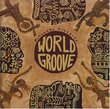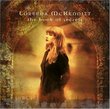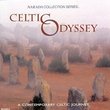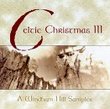| All Artists: Anonymous 4, Marsha Genensky Title: Love's Illusion-Music From The Montpellier Codex 13th Century Members Wishing: 0 Total Copies: 0 Label: Harmonia Mundi Release Date: 8/23/1994 Album Type: Import Genres: Jazz, Special Interest, Classical Styles: Opera & Classical Vocal, Historical Periods, Early Music Number of Discs: 1 SwapaCD Credits: 1 UPC: 093046710927 |
Search - Anonymous 4, Marsha Genensky :: Love's Illusion-Music From The Montpellier Codex 13th Century
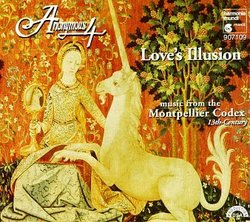 | Anonymous 4, Marsha Genensky Love's Illusion-Music From The Montpellier Codex 13th Century Genres: Jazz, Special Interest, Classical
How's this for a concept: "True love may exist only outside of marriage, and a man must subject himself totally to the will of his beloved, whether or not her requests seem rational." If you think these ideas strange, be... more » |
Larger Image |
CD DetailsSynopsis
Amazon.com essential recording How's this for a concept: "True love may exist only outside of marriage, and a man must subject himself totally to the will of his beloved, whether or not her requests seem rational." If you think these ideas strange, be glad you weren't looking for love in France in the Middle Ages. These precepts course through thousands of song lyrics and love poetry during the 12th and 13th centuries and some of them appear on this exceptional recording by Anonymous 4. Specifically, these four women perform 13th century French motets found in an important manuscript known as the Montpellier Codex. These polyphonic works span the entire century and thus express a variety of styles. Sometimes the use of texts is striking, as when a love song, a diatribe against hypocrisy, and a rousing drinking song are sung simultaneously. Not bad, if you can get away with it. Anonymous 4 can-and does. --David Vernier Similarly Requested CDs
|
CD ReviewsExcellent Rendition of Early Music. Buy It. B. Marold | Bethlehem, PA United States | 10/28/2005 (5 out of 5 stars) "`Love's Illusion' is the third album done by the medieval vocal quartet, `Anonymous 4' and the first recording for them of secular motets, although it is important to note that to my relatively uneducated ear, I find it hard to discern the difference between these French love songs and their renditions of medieval church music. This is not to say I have a totally tin ear but rather to indicate that there is as strong or stronger connection between these secular songs and the liturgical music of the day as there is between Aretha Franklin's soul singing and Southern Baptist church songs. One would be foolish to think that church music influenced secular music for the first time in 1956. The text for these songs is based on the Montpellier Codex from the 13th century and, as I said, are all in what I believe is an early version of French. The accompanying booklet gives all the French lyrics, plus translations of these lyrics into English and German (since the record company, harmonia mundi, is, I believe, headquartered in Germany and the recording is manufactured in Germany. While this is the first album I have reviewed by this group (named after an anonymous 13th century English writer on music who lived and worked in Paris and wrote about the music done) I have been listening to their recordings for several years now and I decided to start with this one and leave some of the liturgical works for later, closer to the Christmas season. On a purely visceral level, I like this recording very much. On an intellectual level, I believe this is as good or better than any other medieval pieces, and most other Renaissance vocal pieces I have heard, except for some works with larger choruses such as Guillaume Du Fay's Mass for St. Anthony of Padua and Ensemble Gilles Binchois recording of eleventh century French Polyphony. For those who are new to Anonymous 4 recordings, they are generally done not in a studio but in the nave of a large church, so there is a distinct sense of their singing in a great open space, with little or no sense of electronic enhancement. I really like this effect for this music and find it just one more reason to recommend this and other Anonymous 4 recordings. I think my highest recommendation comes from the fact that I can listen to this recording many times over and not become tired of it. There are other unusual types of music such as Russian chants, tangos, and even jazz which I can take for an hour or so and then must change. This material I can listen to for hours on end. Highly recommended for fans of early music or for people who want something different. " A stunningly beautiful collection of music A. Altman | San Carlos, California United States | 02/24/1999 (5 out of 5 stars) "This one belongs on your short "desert island" list. It is extremely well recorded (you could mistake it for an LP, it is so liquid and sweet), and just hauntingly beautiful." Superb thirteenth-century polyphony FrKurt Messick | 11/03/1998 (5 out of 5 stars) "Listening to the ensemble Anonymous 4 one can't help but notice their exquisite vocal form. In my opinion this is the finest recording of thirteenth-century polyphony available."
|

 Track Listings (29) - Disc #1
Track Listings (29) - Disc #1
